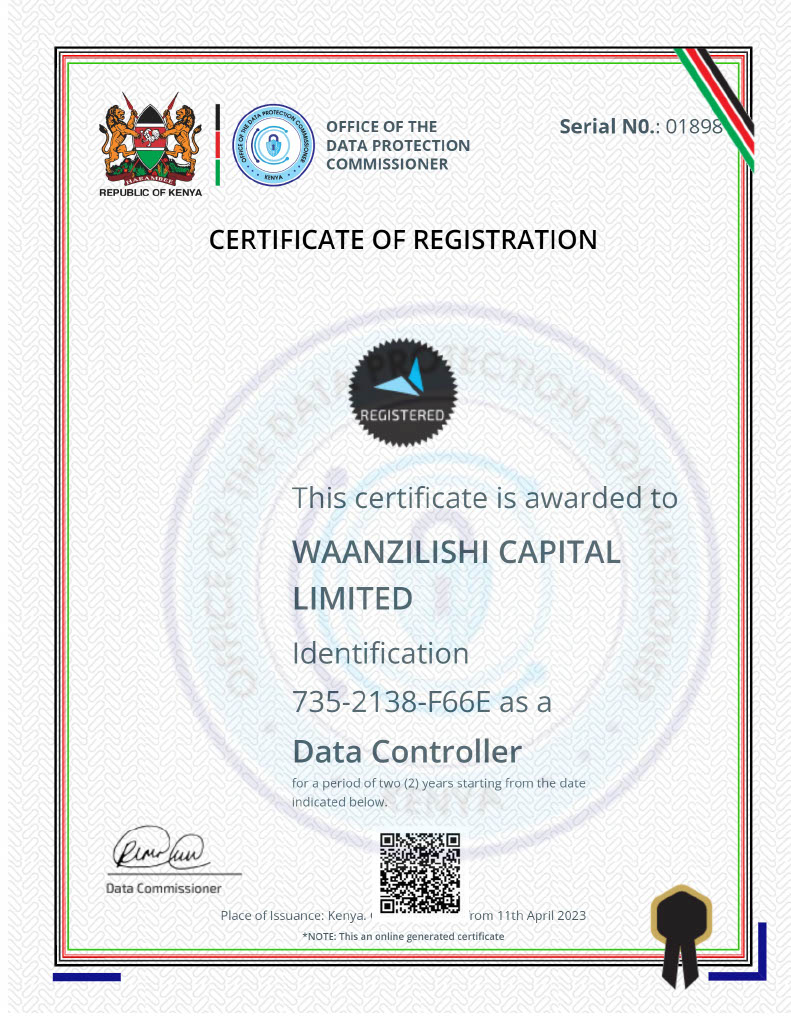Are you feeling the pinch of Kenya’s high cost of living? You are not alone. Many Kenyans struggle to make ends meet and save money as essential goods and services prices keep rising. Despite the High Court of Kenya’s effort to bar the Treasury Cabinet Secretary from implementing the 2023 Finance Act, the ripple effect of the recent increase in the value-added tax (VAT) on fuel products from 8% to 16% is being felt in the transport and energy sectors and other commodities adding insult to injury in most Kenyans’ financial situation.
As a result, more and more people are looking for ways to save money in Kenya’s high-cost economy. This blog will share practical tips and tricks on embracing frugality and maximizing the value of your shilling.
What is Frugal Living?
Frugal living is the act of being intentional about how you choose to spend money. It’s all about adopting a mindful approach to spending and making conscious choices to save money wherever possible. It also involves being resourceful and creative in finding ways to live a fulfilling life without breaking the bank. While this approach may seem like a sacrifice in quality, it doesn’t have to be. Instead, you can be frugal in ways that add more value to your life.
Embracing frugality not only helps in managing expenses but also promotes financial stability and a sustainable future. Here are ten practical tips for embracing frugal living in Kenya, enabling you to navigate financial constraints and absorb global economic shocks.
10 Practical Tips to Save Money in a High-Cost Economy.
1. Create a Budget and a Savings Plan
The first step towards embracing frugality is to create a monthly budget. You can achieve this by following these simple steps;
- List all your income sources.
- Add up your expenses.
- Set realistic spending limits for different areas, such as groceries, utilities, transportation, and entertainment, and stick to them.
- Set your savings goal. Once you know how much money you have for ‘wants,’ you can work out how much you’d like to save and use your budget to work towards it.
- Review and adjust your budget regularly.
2. Save Money on Food by Embracing Meal Planning.

Eating out can be expensive, so opt for home-cooked meals. Take control by planning your meals, making a shopping list accordingly, and sticking to it. This practice not only helps in saving money but also promotes healthier eating habits.
Meal planning does not have to be boring. One way to make it more exciting is by trying out new recipes from food bloggers. These bloggers often share pocket-friendly recipes that are delicious and easy to prepare.
With the advent of technology, platforms like YouTube have become a valuable resource for finding recipe videos that can guide you step by step.
3. Minimize Transportation Costs.
Find cost-effective ways to commute. Consider carpooling, using public transportation, or cycling whenever possible. Not only does this help reduce your carbon footprint, but it also saves money on fuel and vehicle maintenance.
4. Shop Smartly.
When shopping for groceries or other essentials, compare prices from different supermarkets or online platforms. Supermarkets have frequent special offers and discounts that you can take advantage of to save money.
Consider registering for loyalty programs at supermarkets. These programs reward customers with points for every shilling they spend in the store that they can later redeem for discounts or use to buy selected products in the supermarket.
5. Reduce Entertainment Costs.
Frugal living doesn’t mean compromising on entertainment. Look for free or low-cost recreational activities such as hiking, picnics, local events, or visiting museums on discounted days. Explore the beautiful natural landscapes and cultural heritage Kenya has to offer.
6. Reduce Utility Bills.
Energy and water bills can quickly add up, impacting your monthly budget. Practice energy-saving techniques such as:
- Using energy-efficient light bulbs. LED lighting is very efficient and saves you up to 85% energy compared to ordinary bulbs.
- Unplug electronics when not in use.
- Thaw frozen foods first to reduce cooking time and save energy when heating the food.
- Fix leaks promptly and use water-saving devices.
- Allow for foods to cool before placing them in the fridge. Cooling hot food in the fridge uses more energy.
- When using a kettle, only boil the water you need. It uses less energy.
7. Start a Small Garden.
Start a small garden, even using just a few pots on your balcony. Growing your herbs, fruits, or vegetables can significantly reduce your grocery expenses while giving you a sense of accomplishment.
8. Pay in Cash to Save on Transaction Costs.
If you spend more using cards, paying in cash can help you save money. An all-cash diet saves you money by making you second-guess each purchase. It limits your spending to the amount of physical cash you possess. It can be an effective tool to get your money under control.
While mobile money and M-Pesa may appear to be more convenient than cash, the transaction costs can slowly add up. For instance, let’s compare monthly transaction costs if you use Kshs. 1000 weekly.
- If you were transacting with cash and withdrew Ksh. 4000 from your bank account to cater to your monthly expenditure via an ATM or mobile banking; this single transaction would cost Ksh. 30.
- Transacting Ksh. 1000 at the end of each week via M-Pesa would cost Ksh. 13. At the end of the month, those transaction costs will amount to Ksh. 52.
These transaction costs, which seem insignificant initially, can accumulate over time and become a significant cost burden for individuals who frequently use mobile money for their transactions.
9. Share Expenses with Friends or Family Members.
Sharing expenses with friends and family can be an effective way to save money. By pooling resources and splitting costs, you can collectively reduce the financial burden of various expenses. This collaborative approach allows everyone involved to enjoy the benefits of cost-sharing, resulting in significant savings. Consider using apps that make it easier to achieve this virtually by providing an avenue to contribute and manage money through shared digital wallets.
10. Invest in Financial Knowledge and Skills to Enhance Earning Potential and Improve Financial Stability.

Investing in financial literacy is important because it empowers you to make informed and responsible financial decisions. It helps you understand concepts like budgeting, saving, investing, and debt management to help you better manage your money.
In Kenya, you can expect to pay between 1-2% of your investable assets per year for comprehensive financial planning services. However, at ndovu, we offer financial advisory sessions completely free of charge, eliminating any financial barrier that may prevent you from seeking professional help.
As the cost of living in Kenya continues to rise, mastering the art of frugality becomes increasingly essential. By implementing these ten tips into your daily routine, you can take control of your finances, reduce unnecessary expenses, and build a more secure future. Remember, frugality is not about depriving yourself but about making thoughtful choices that align with your financial goals.
How to Embrace Frugality and Save with ndovu.
Frugal living goes beyond just cutting expenses; it involves building a solid financial foundation. One way you can do this is by embracing a saving culture. Even with a tight budget, try setting aside a portion of your income at the end of each month.
As you embrace frugality, ndovu is committed to providing opportunities and knowledge to help you build healthy financial habits and secure your financial future.
Disclaimer.
The information provided on this platform, as well as the products and services offered, are intended solely for persons in regions and jurisdictions where such distribution and utilization are in accordance with local laws and regulations.
ndovu does not promote its services in regions where it lacks the necessary licenses; It is exclusively available to persons residing in countries where it holds a valid license or has licensed partners. ndovu does not extend its services to citizens of the United States, Canada, Japan, and other restricted territories.

